The continuing hunt for a hardline Sikh separatist in India’s western state of Punjab has snowballed into a diplomatic clash with the United Kingdom.
On Wednesday, British Foreign Secretary James Cleverly said the country will review security at the Indian High Commission in London following “unacceptable acts of violence” towards the mission’s staff.
Cleverly’s statement came shortly after India, in a purported tit-for-tat move, removed temporary security barricades outside the British High Commission in New Delhi, the Press Trust of India news agency reported.
Earlier this week, India also summoned the most senior British diplomat in New Delhi to protest over the actions taken by “separatist and extremist elements” against the country’s mission in London.
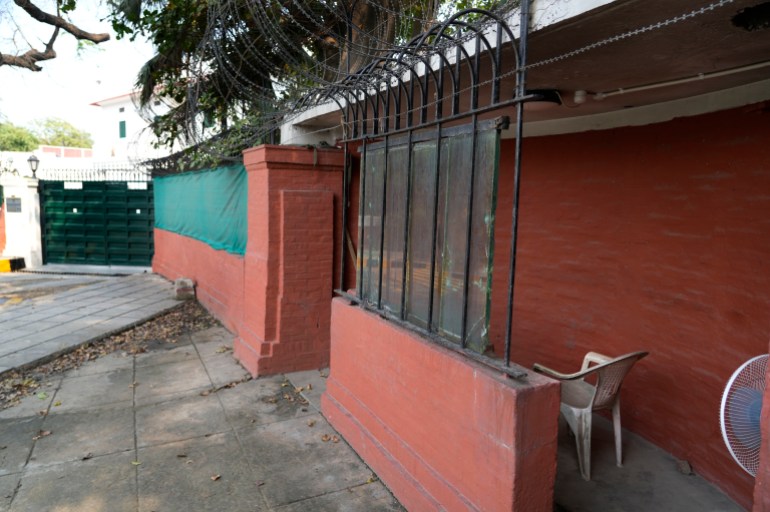
How did it come to this?
It all started on Saturday after police in Punjab launched a search for Amritpal Singh, a separatist leader who has revived calls for an independent Sikh homeland, stirring fears of violence in a state with a history of bloody rebellion.
Police accuse Singh, 30, and his aides of creating discord in the state, which is haunted by the memories of a violent separatist movement in the 1980s for an independent Sikh state called Khalistan.
The movement prompted a controversial military operation by the Indian government that killed thousands of people, according to official estimates.
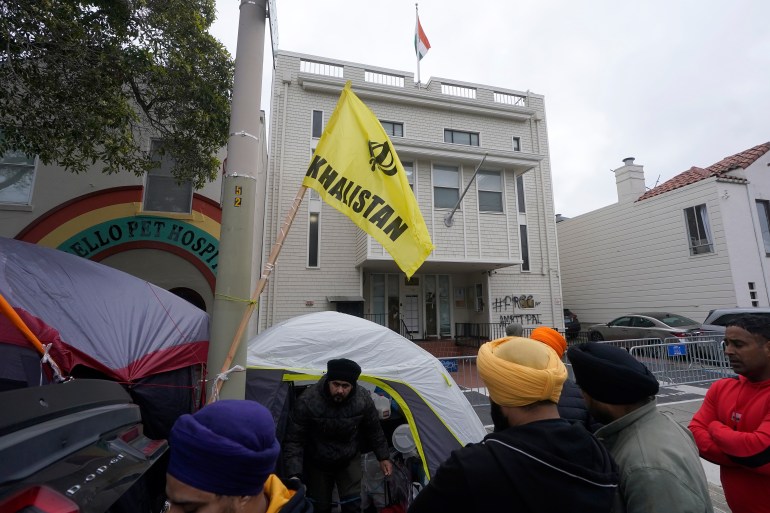
Authorities have deployed thousands of paramilitary soldiers to the state and suspended mobile internet services in some areas to prevent unrest, Sukhchain Singh Gill, the inspector general of police for Punjab, said on Wednesday.
He said police have so far arrested 154 supporters of Singh and seized 10 guns and ammunition while the preacher has been on the run.
Who is Amritpal Singh?
Singh, who has said he supports the Khalistan movement, captured national attention in February when hundreds of his supporters stormed a police station in Punjab with swords and guns to demand the release of a jailed aide.
Very little is known about Singh, who spent a decade in Dubai working in his family’s transport business before returning to India in September last year.
Since then, he has been leading marches calling for protecting the rights of Sikhs, who account for about 1.7 percent of India’s population.
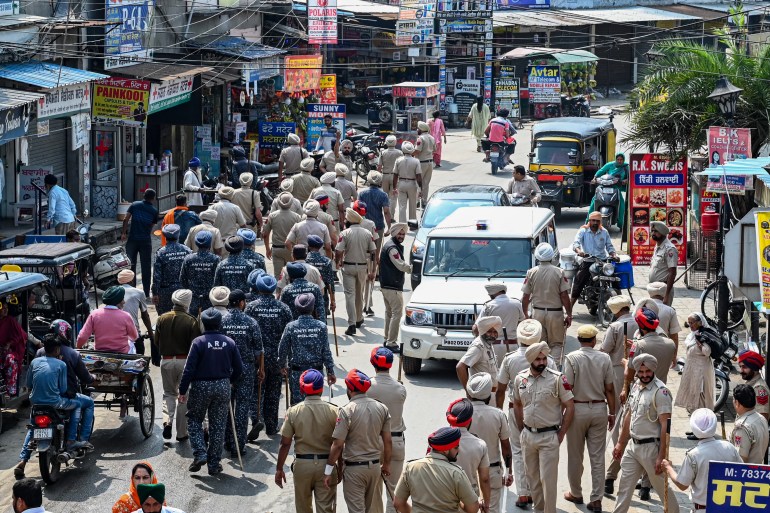
Singh claims to draw inspiration from Jarnail Singh Bhindranwale, a Sikh rebel leader accused by the Indian government of leading an armed revolt for Khalistan that began in the 1970s.
Bhindranwale and his supporters were killed in 1984 when the Indian army stormed the Golden Temple, the holiest shrine in the Sikh religion.
Singh’s speeches have become increasingly popular among supporters of the Khalistan movement, which is banned in India.
Addressing a rally in September in the home village of Bhindranwale, Singh said every drop of his blood was dedicated to “freedom for the community”.
“We all are still slaves … We have to fight for freedom,” Singh said.
Indian officials see the movement and its affiliated groups as a national security threat.
Even though the movement has waned over the years, it still has some support in Punjab and beyond – including in countries such as the UK and Canada, homes to a sizeable Sikh diaspora, as well as the United States and Australia.
An Indian security officer said while Singh had only a few tens of thousands of supporters in India, he had a extensive social media reach, especially abroad, which the officer linked to the embassy protests.
“Surely what’s going on at missions abroad is a reaction to the operation against him. There is a direct link,” said the officer who declined to be identified.
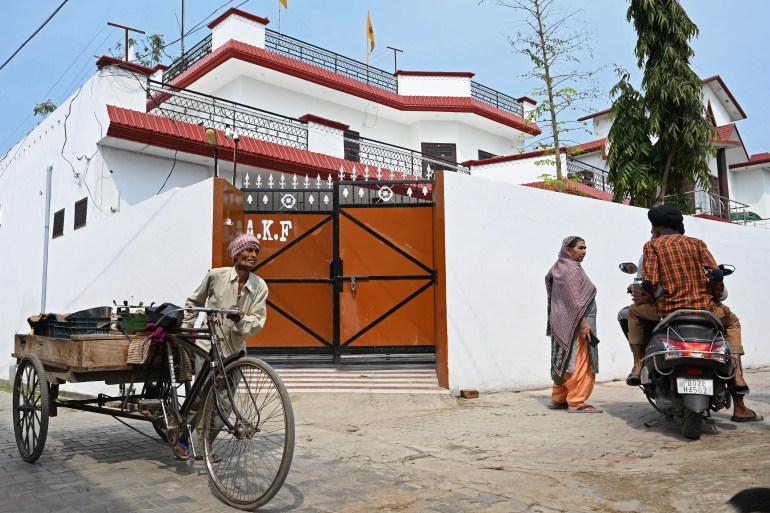
Singh also heads Waris Punjab De (Punjab’s Heirs), an organisation that was part of an enormous campaign to mobilise farmers against controversial agriculture reforms being pushed by Prime Minister Narendra Modi’s government.
The legislation triggered a year of protests that began in 2020, as farmers – most of them Sikhs from Punjab state – camped on the outskirts of New Delhi through a harsh winter and devastating coronavirus surge. The protests ended after Modi’s government withdrew the legislation in November 2021.
Waris Punjab De was founded by Deep Sidhu, an Indian actor who died in 2022 in a traffic accident.
How did UK, US get involved?
The UK is home to more than half a million Sikhs, the country’s fourth-largest religious group. While Sikh secessionism in India has died down, pro-secession groups have become active internationally, mainly in the UK, Canada and the US.
India has often complained to foreign governments about the activities of Sikh hardliners among the Indian diaspora who, it says, are trying to revive the armed uprising with a big financial push.
A day after the Punjab police launched its operation to arrest Singh, his supporters pulled down the Indian flag at India’s High Commission in London and smashed the building’s window in a show of anger.
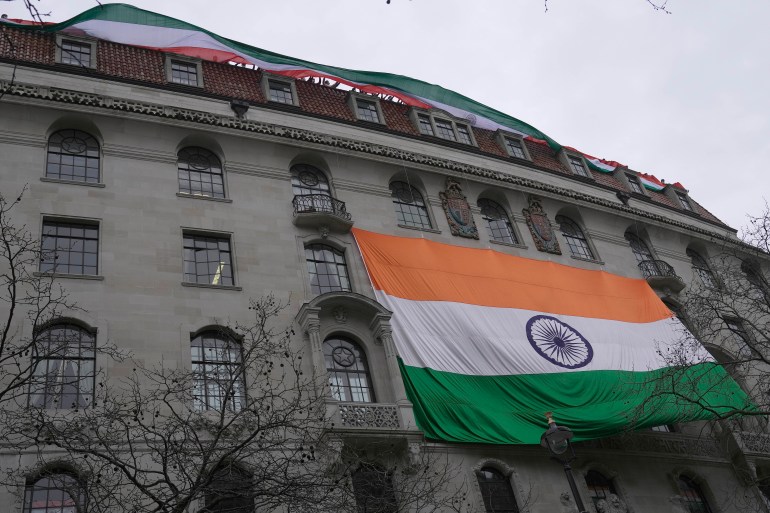
The BBC and Indian media reported that protesters with “Khalistan” banners detached the Indian flag from the first-floor balcony of the diplomatic mission’s building to protest against the recent police action in Punjab.
According to the BBC, crowds gathered outside the high commission’s building on Sunday and windows were broken, after which India demanded an explanation for the “complete absence of the British security” around the premises.
India’s foreign ministry denounced the incident and summoned the UK’s deputy high commissioner in New Delhi, Alex Ellis, to protest what it called the breach of security at the embassy in London.
Cleverly said a police investigation into the acts of violence was continuing and that his government will make the necessary changes to ensure the safety of the Indian mission’s staff in London.
India’s The Hindu newspaper on Wednesday reported that at least 100 police officers were standing guard on both sides of the road outside the High Commission in London on Wednesday.
The supporters of the Khalistan movement also vandalised the Indian consulate in San Francisco on Monday, triggering a strong protest by New Delhi.
“The US government was reminded of its basic obligation to protect and secure diplomatic representation. It was asked to take appropriate measures to prevent recurrence of such incidents,” an Indian foreign ministry statement said on Monday.
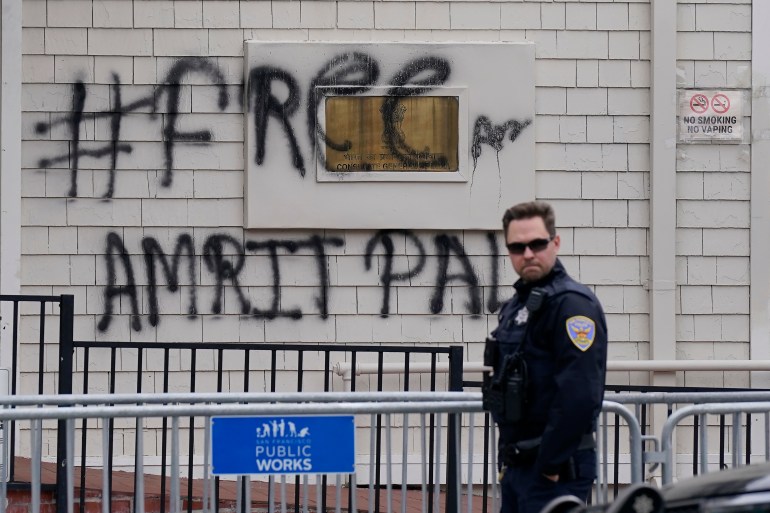
Stay connected with us on social media platform for instant update click here to join our Twitter, & Facebook
We are now on Telegram. Click here to join our channel (@TechiUpdate) and stay updated with the latest Technology headlines.
For all the latest World News Click Here
